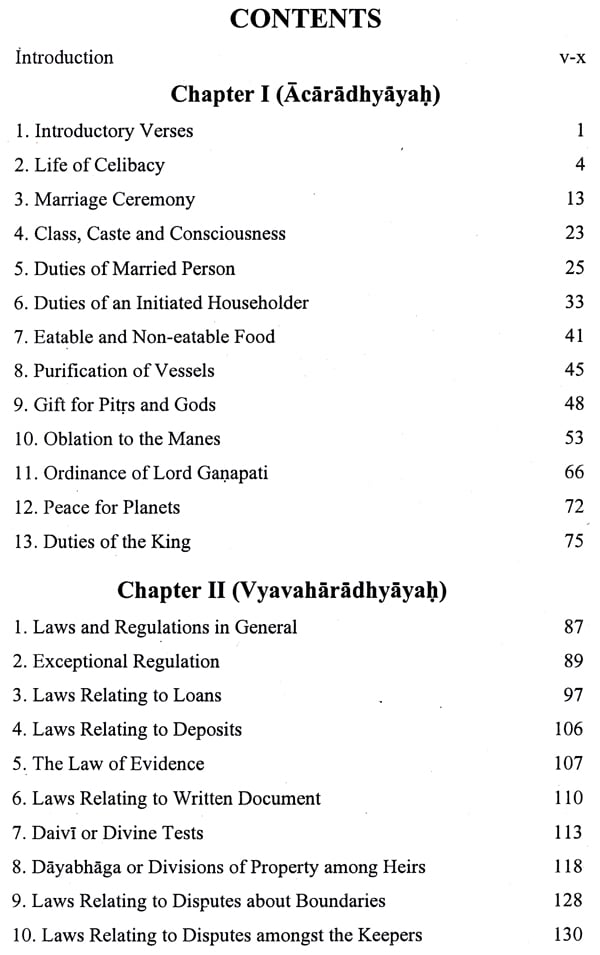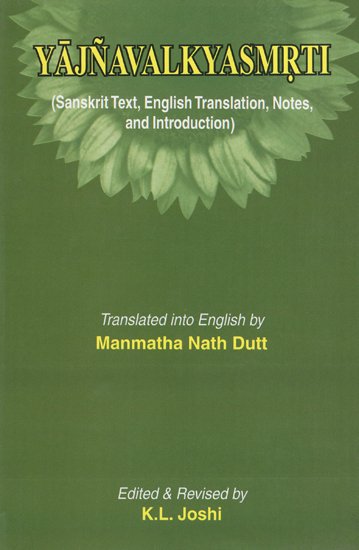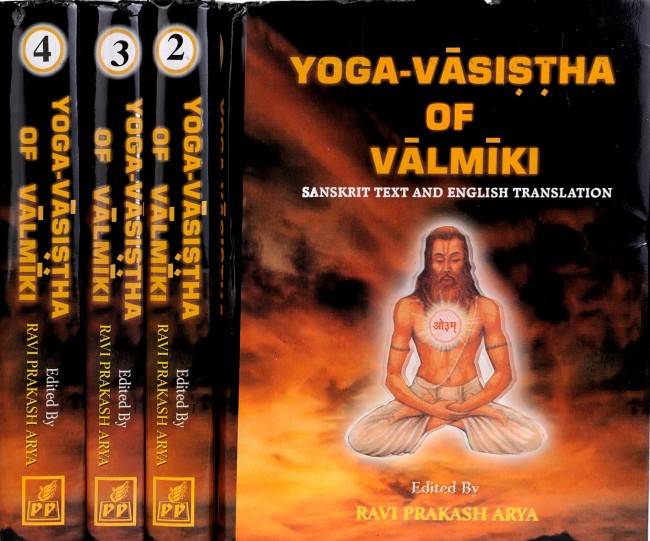Yajnavalkyasmrti (Sanskrit Text, English Translation, Notes and Introduction)
Original price was: ₹400.00.₹360.00Current price is: ₹360.00.
| Author-Editor/लेखक-संपादक | Manmatha Nath Dutt |
| Language/भाषा | Sanskrit Text with Hindi Translation |
| Edition/संस्करण | 2005 |
| Publisher/प्रकाशक | Parimal Publication |
| Pages/पृष्ठ | 286 |
| Binding Style/बंधन शैली | Hard Cover |
| ISBN | 9788171102730 |

The history of the origin of Smrti attributes it to the Self-Sprung Brahma who communicated it to Manu, who again taught it to the ten patriarchal sages, viz., Marici, Atri, Angira, Pulastya, Pulaha, Kratu, Praceta, Vasistha, Bhrgu and Narada.
Smrti consists of three Kandas or sections, viz.,- (i) Acara or regulations relating to the performance of religious rites and ceremonies and the general duties of men; (ii) Vyavahara or civil laws relating to the protection of life and property with all their rules and practices; (iii) prayscitta or those relating to the atonement for various sins committed. But all these groups of laws, religious, civil and about atonement, pass by one comprehensive term which is popularly known as the Dharma-Sastra.
Of all the Smrtis, Manusmrti is regarded by the Hindus as next in sanctity to the Vedas. It is the oldest of all the laws and its authorship is attributed to Manu himself, the son of Brahma. He was the most ancient and greatest of all Lawgivers.
Subsequent writers, of Hindu Law Codes, considered Manu as their authority and wrote their books after the same model. The laws of Manu were held in such great veneration by the saintly writers of law-treatises that no part of their books contradicting Manu, was regarded as an authority on the subject.
After Manu, among other seers, Yajnavalkya is known to be a great philosopher and spiritual master. He delivered his precepts to a number of ancient philosophers assembled in the province of Mithila. His institutes are regarded by the Hindus as second in Importance to those of Manu. They have been divided into three books, namely acara, vyavahara, and prayascitta. The work contains one thousand and twenty-three couplets.
The most ancient commentary on Yajilavalkyasmrti is the gloss of Apararka. Then comes the most celebrated commentary Mitaksara of Vijfianegvara. Two more commentaries on the same Smrti were written by Devabodha and Vigvarupa. The Bengal School of Lawyers holds in highest esteem the commentary on Yajfravalkya known as Dipakalika. Its authorship is attributed to -filaparii, a native of Mithila.
The Mitaksara is not only a commentary on Yajnavalkyasmrti but a general digest highly valued and esteemed by the Hindus. Its character is thus described:- “By citing the other legislators and writers as an authority for his explanation of Yajnavalkya’s text which he professes to illustrate, and expounding their texts in the progress of his work, and at the same time reconciling the seeming discrepancies, if any between them and the text of his author, Vijnanesvara has surpassed all those writers of commentaries whose works combine the utility of regular digests with their original character as commentaries.


Only logged in customers who have purchased this product may leave a review.




Reviews
There are no reviews yet.